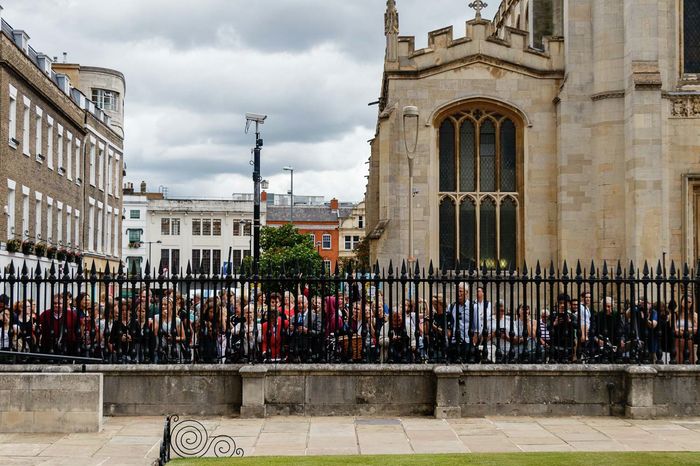The University is right to cut funding for private ADHD diagnoses
The decision to cut funding to private clinics is ultimately necessary to guard students from the greed of private healthcare providers, argues Sam Hudson

The decision by the University to cut funding for private ADHD diagnoses has, predictably, been met with significant opposition, with the incoming SU disability officer describing the university’s decision as one that “amounts to discrimination” against disabled students. This paper, too, published an article accusing the university of “invalidating [disabled students’] experiences while being ignorant of the true problem at hand”. While well-meaning, I would argue that these accusations are misguided. The University should instead be applauded for taking an unpopular, but ultimately necessary step to guard students, and themselves, against the rapacity of private healthcare providers.
Given our limited understanding of the brain, the vast majority of psychiatric disorders can only be diagnosed through self-reported symptoms. This sets psychiatry apart from other fields of medicine which usually rely on identifying an underlying cause to establish a diagnosis. The fact that psychiatric conditions require a degree of subjectivity in the interpretation of diagnostic criteria leaves them open to exploitation. As a Panorama investigation from last year discovered, this has enabled many private clinics to play fast and loose with the symptom-based diagnostic criteria of ADHD to exploit patients.
"There is a very clear incentive for private clinics to find positive diagnoses"
Many patients who were diagnosed with ADHD privately later discovered they did not meet more rigorous diagnostic criteria or had a different condition when diagnosed by the NHS. Indeed, as the BBC discovered, positive diagnostic rates were as high as 90% in some private clinics. Equally, while a typical diagnosis might take around three hours through the NHS, appointments at private clinics were substantially shorter - some lasted only 45 minutes.
There is a very clear incentive for private clinics to find positive diagnoses where others would not. ADHD is one of the few psychological conditions which is widely medicated. Under private healthcare, patients (or their insurance provider) pay for the provision of this medication from their clinic. It is hardly conspiratorial to suggest that a consistent stream of income from patients provides a strong incentive to diagnose positively for ADHD specifically, even if a different diagnosis may be better for the patient.
In an ideal world, the NHS would have sufficient capacity to deal with students requiring an ADHD diagnosis. This is, unfortunately, a world we are very far from. Funding for students to skip the years-long NHS waiting list by going private, while well-intentioned, has become a greater evil. Though many students have undoubtedly benefited from a faster diagnosis, it is simply impossible to be confident in the care being provided when private healthcare providers have been so reckless. It seems eminently sensible then for the University to stop paying for inadequate services.
"In an ideal world, the NHS would have sufficient capacity to deal with students requiring an ADHD diagnosis"
Despite the obvious conflicts of interest held by private clinics, many were critical of the BBC for suggesting that more nefarious motives might be behind the elevated diagnosis rates within private clinics. Some accused the BBC of minimising or even denying ADHD when the programme first aired. It is understandable why people might be wary of the idea that ADHD is being overdiagnosed by private clinics. As with many psychological conditions, there has been a historical tendency to blame those with ADHD for their own predicament or even argue that some are “faking it” for personal gain.
But by creating a culture where any scepticism is seen as taboo, many who have sought to defend disabled people have carried water for those who wish to exploit disability. It is possible to both recognise the reality of ADHD while considering the possibility that some individuals have been falsely diagnosed due to malpractice.
"Patients here are not villains... but victims of NHS failure"
None of this is to suggest that those falsely diagnosed do not genuinely suffer. Patients here are not villains, as some worry they are portrayed as, but victims of NHS failure, an opportunistic and exploitative health “care” industry, and a culture which has unwittingly defended and normalised these excesses. Though the University may not have intended it as such - their rationale for cutting funding was simply that it had become too expensive - they are right to stop more of its money going to a crooked industry.
A better and ultimately more cost-effective solution would be for the university to employ its own psychologists to diagnose students. With perverse incentives removed, we would have much greater confidence in the care being provided to students. In the long term, I hope this is a solution the university will consider and adopt. In the meantime, it is understandable why people are unhappy with the provision being removed. Even so, there is a certain irony that smart, progressive people will so vocally play defence for the worst excesses of private business.
 Features / Should I stay or should I go? Cambridge students and alumni reflect on how their memories stay with them15 December 2025
Features / Should I stay or should I go? Cambridge students and alumni reflect on how their memories stay with them15 December 2025 News / SU reluctantly registers controversial women’s soc18 December 2025
News / SU reluctantly registers controversial women’s soc18 December 2025 News / Dons warn PM about Vet School closure16 December 2025
News / Dons warn PM about Vet School closure16 December 2025 News / Cambridge study finds students learn better with notes than AI13 December 2025
News / Cambridge study finds students learn better with notes than AI13 December 2025 Arts / A beginner’s guide to Ancient Greek tragedy16 December 2025
Arts / A beginner’s guide to Ancient Greek tragedy16 December 2025










